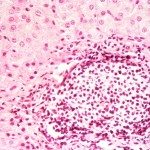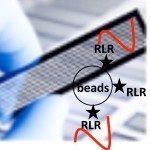Virus-host ribonucleoprotein complexes and innate immunity
The RIG-I-like receptors (RLRs) play a major role in sensing intracytoplasmic RNA virus infection to initiate and modulate antiviral immunity. These RNA helicases interact with particular signatures of viral RNA but also with cellular protein and RNA partners, most of them being still unknown. To decipher the network of interactions between RLRs and proteins or RNA molecules in a viral context, we developed cutting edge high-throughput approaches based on tagged protein affinity purification, next-generation sequencing of RNA molecules and mass-spectrometry analysis of protein complexes. We obtained extensive lists of specific virus-host interactions between RLRs and protein/RNA molecules in the context of measles and chikungunya infections. Investigating these complexes into action within infected cells will help to understand the molecular features underlying innate immune response to these viruses. A similar project is developed in the context of HIV infection. Understanding the characteristics of viral RNA ligands recognized by RLRs and the proteins that control RLR signaling should guide RLR-targeted therapeutics for antiviral and immune-modulation applications.




